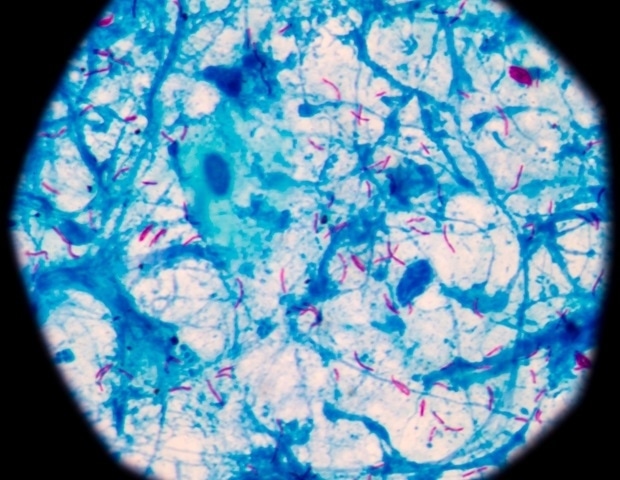By Amy Norton HealthDay Reporter
WEDNESDAY, July 27, 2022 (HealthDay News)
Researchers have long suspected that humans evolved to tolerate dairy products in order to reap their health benefits. Now a new study refutes that idea.
Around one-third of the world’s population possesses a gut enzyme that allows them to digest lactose, a sugar in milk. Those lucky individuals — mostly of European heritage — can feast on dairy products without suffering digestive woes.
Exactly why those people exist, however, has never been clear.
Nearly all babies can readily digest milk thanks to an enzyme called lactase. But for prehistoric humans, that enzyme would naturally wane and shut down by adulthood — what scientists term lactase non-persistence.
That was, at least, until several thousand years ago, when a gene variant emerged that allowed some adults to keep churning out lactase.
Today, almost two-thirds of Americans have that ability, according to the U.S. National Institutes of Health. However, most of the world’s population still lacks the lactase enzyme — including most adults in Africa and Asia.
Experts have long theorized that lactase persistence evolved so that adults could drink animal milk, presumably for nutrition and health benefits. Such an evolution might have been especially helpful to Northern Europeans, who would have been at greater risk of brittle bones.
But in the new study, published July 27 in the journal Nature, scientists found that prehistoric Europeans were widely consuming milk thousands of years before genetic lactase persistence emerged.
They base that on an analysis of 7,000 residues from archeological pots, which allowed them to detect milk fats absorbed into the ancient pottery.
The researchers estimate that European farmers were commonly consuming milk as early as 9,000 years ago (around 7000 B.C.) — when it’s unlikely any would have been genetically endowed to produce lactase.
The scientists base that latter assumption on published genetic data from nearly 1,800 prehistoric European and Asian individuals.
They found that the gene variant for lactase persistence was not detectable until around 4600 B.C., and it did not become common until roughly 2000 B.C.
It all suggests that prehistoric humans were downing milk well before any genetic shifts around lactase production. So it seems that despite the enzyme deficiency, they were able to handle milk without much fuss, according to researcher Mark Thomas, a professor of evolutionary genetics at University College London.
For those ancient populations, he said, milk from farm animals would have provided a convenient, nutrient-rich food — probably worth some gas, bloating or even mild diarrhea.
And, Thomas said, it’s not even clear how often, or to what degree, prehistoric people would have suffered those symptoms.
Other factors, he said, could affect whether a person lacking the lactase enzyme actually has symptoms from consuming milk — including the makeup of the gut’s resident bacteria.
In fact, Thomas said, a separate arm of the study illustrates that well.
For that, the researchers combed data from the U.K. Biobank, a research project collecting genetic and medical information from around 500,000 British adults.
Of all Biobank participants who genetically lacked the lactase enzyme, few were on a lactose-free diet, and 92% described themselves as milk drinkers. That was nearly identical to the rate among people who were genetically lactase persistent.
So, Thomas said, it’s likely that — as in prehistory — many lactase-deficient people today do not suffer chronic symptoms.
A dietitian who was not involved in the study said there is indeed wide variance in lactose intolerance symptoms.
Many people can handle modest amounts of the sugar — akin to a glass of milk a day, said Emma Laing, director of dietetics at the University of Georgia and a spokesperson for the Academy of Nutrition and Dietetics.
Plus, she said, people with lactose intolerance often fare well with dairy products such as yogurt and hard cheese, which have relatively little lactose.
Laing also agreed that having a good amount and diversity of “healthy” gut bacteria can aid with lactose digestion, such that people may not have symptoms from that dish of ice cream.

SLIDESHOW
Common Allergies: Symptoms and Signs
See Slideshow
But if humans did not develop lactose tolerance in order to enjoy dairy, why did we?
Using statistical modeling, Thomas and his colleagues found support for two main drivers of lactose tolerance.
One is famine: The researchers believe that during periods of failed crops and food scarcity, people would have relied heavily on milk. If that caused diarrhea in a malnourished person, it could prove fatal. So those few people with genetic lactase persistence may have been more likely to survive and pass on that gene.
The other possible driver is humans’ increasing exposure to infections as population density grew. Again, the researchers say, any diarrhea caused by drinking milk — while unpleasant to a healthy person — could be fatal to someone battling an infectious disease. And again, that would favor the survival of people who were genetically able to produce lactase.
But while many prehistoric people may have savored their cup of milk, Laing cautioned that lactose intolerance can cause significant symptoms in some people. And unlike in 7000 B.C., she noted, lactose now lurks in many processed and prepared foods, and even medications.
So individuals vary, Laing said, in the steps they need to take to avoid symptoms — something they should manage with help from their doctor or dietitian.
More information
The U.S. National Institute of Diabetes and Digestive and Kidney Diseases has more on lactose intolerance.
SOURCES: Mark Thomas, PhD, professor, evolutionary genetics, University College London, United Kingdom; Emma Laing, PhD, RDN, director, dietetics, University of Georgia, Athens, and spokesperson, Academy of Nutrition and Dietetics, Chicago; Nature, July 27 2022, online

Copyright © 2021 HealthDay. All rights reserved.




_6e98296023b34dfabc133638c1ef5d32-620x480.jpg)








